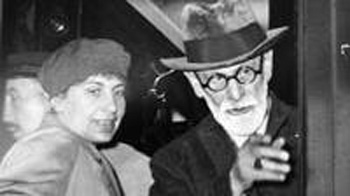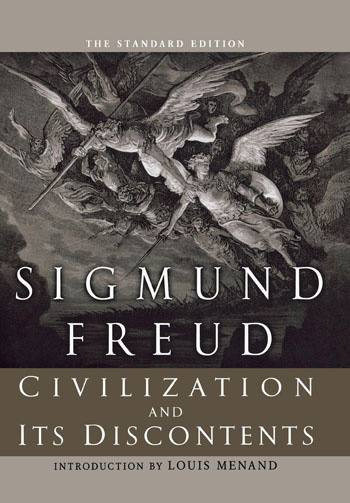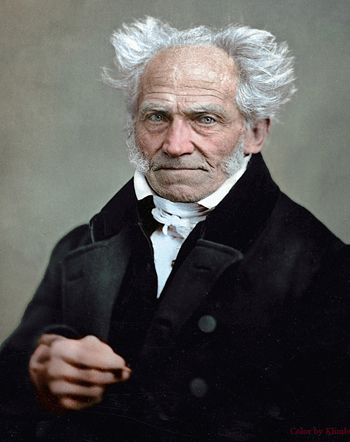Personalities
 |
 |
 |
 |
 |
 |
 |
Instinct of Death & Original Sin
In 1923 Freud wrote his last clinical work called The Ego and the Id. After that, already in his old age, he turned his attention to reflection on cultural themes and wrote three works: The Future of an Illusion, a book written in 1927 that I commented on in my previous article, Civilization and Its Discontents in 1930, which I am commenting on today, and finally in 1938 Moses and the Monotheism, his last work, which I plan to analyze soon.
 Freud died on September 23, 1939 in London. In 1938 he fled from Austria to England in 1938, after the arrest and interrogation of his daughter Anna Freud at Gestapo headquarters. She was released but that incident spurred his decision to leave Austria. Due to international intervention and pressure, he and his wife and daughter were allowed to depart to England.
Freud died on September 23, 1939 in London. In 1938 he fled from Austria to England in 1938, after the arrest and interrogation of his daughter Anna Freud at Gestapo headquarters. She was released but that incident spurred his decision to leave Austria. Due to international intervention and pressure, he and his wife and daughter were allowed to depart to England.
His 1930 work Civilization and its Discontents was written in 1929 and published in 1930 as Das Unbehagen in der Kultur (Uneasiness in Culture).
Some of his biographers, Ernest Jones among them, believe that Freud saw with concern the advance of totalitarian regimes, such as Communism in the Soviet Union, Fascism in Italy and the increasingly dangerous National Socialism in Germany.
In this work he addressed the instinct of life and the instinct of death, which he called Thanatos, in reference to the Greek god of death.
 After more than 80 years since his death, seeing history in perspective, I would say that Freud in this book evaluated the value of Civilization and defended it, although with his known pessimism.
After more than 80 years since his death, seeing history in perspective, I would say that Freud in this book evaluated the value of Civilization and defended it, although with his known pessimism.
Let me explain my point. Freud started his book analyzing the opposition between sexuality and culture, or civilization. I believe that he thought that in order to have a civilized and learned society with high artistic and scientific aspirations, sexuality must be obligatorily repressed. He argued that is not possible to have "free sex" and, at the same time, a developed civilization. If we completely release the sexual instincts - today's world is a blatant example - man necessarily becomes a brute.
Quite surprisingly, the author said that the sexual liberation is an evil and that sex, if it is given a full free rein, will destroy culture and civilization. Could it be that, at the end of his life, Freud became aware of the stultifying reality regarding sex and the other unruly instincts? In my modest opinion, this is how it appears.
For him, civilization with its great works, art, and subtle and abstract thinking was only possible because it repressed the instincts. For Freud, without repression culture cannot exist.
In this way, Freud suddenly made a U-turn from his science of psychoanalysis and sent an alert to the modern world: The instincts, and principally the sexual instincts, must be tamed and governed. However, following to his pessimistic focus, this repression would lead to neuroses.
 Thus, we face a kind of contradiction that produces a malaise. However, if we consider that he might have been knowingly contradictory and pessimistic, we have an answer.
Thus, we face a kind of contradiction that produces a malaise. However, if we consider that he might have been knowingly contradictory and pessimistic, we have an answer.
Indeed, some philosophers like Arthur Schopenhauer consciously took a similar pessimist position. Noting this, Pierre Raikovic, in his book The Dogmatic Dream of Freud, paraphrased Kant and said: "Didn't Freud belong to the same class of 'contesters' to which Schopenhauer belongs?" (O Sono Dogmático de Freud, Portuguese ed., 1996, p. 27)
At any rate, this position of Freud surprised many, principally authors such as Wilhelm Reich, who desired a society with a complete sexual freedom.
But, another point also catches my attention in Civilization and its Discontents.
Instinct of life, instinct of death
I refer to the concepts of instinct of life and instinct of death, or death instinct.
In his 1920 essay Beyond the Pleasure Principle, Freud had already mentioned the existence of two opposed principles in the human soul: life and death. He believed that every man is born with a contradiction and a tension between, on one hand, to construct a culture, works of art and science and, on the other hand, an unconscious desire to kill, destroy and die.
Thus, he thought, the human being has in himself a flaw, a tension, a fracture that drives him to promote either life or death, evil and self-annihilation.
Since the publication of Civilization and its Discontents, the greater part of psychoanalysts work with this idea about the structure of the human psyche: the contradiction and tension between the instinct of life and Thanatos, the death instinct.
Obviously concerned about the direction European politics was heading, Freud ended his book with a phrase that has become sadly and infamously fulfilled: "Hopefully the death instinct will not prevail over its opponent, the instinct of life." (Civilization and its Discontents, 1930)
I will focus now on another point that, I believe, has not yet been studied.
Instinct of death & original sin
I would like to approach these Freudian ideas with the Catholic conception of original sin.
Freud said that man is born with a flaw, a fracture that impels him to do evil.
 It is known in Psychology that the child's behavior has a strong tendency to destroy what is placed before him. When a child wants something, he wants it immediately and becomes very irritated when his desire is not satisfied. He fights, cries, throws himself on the floor, wants to kick his parents, declares that he no longer likes them and wants to kill them.
It is known in Psychology that the child's behavior has a strong tendency to destroy what is placed before him. When a child wants something, he wants it immediately and becomes very irritated when his desire is not satisfied. He fights, cries, throws himself on the floor, wants to kick his parents, declares that he no longer likes them and wants to kill them.
It is common for a mother to tell the doctor that her child bites her breast after being fed and destroys the toys he plays with. It was the observation of similar phenomena in children that led Freud to say that the child is born with an instinct of destruction.
This same tendency, however, is labeled by healthy Catholic Theology as the "consequence of original sin."
I believe that Freud ignored this similarity, as did the psychoanalysts who followed him. But it does in fact exist.
Today, many experts in the world of Catholic Psychology make this association between the instinct of death and the consequences of original sin.
I would end by saying that this work of Freud in some ways points out and clearly criticizes sexual liberation as a natural enemy of civilization.
I also affirm that he should have linked his death instinct to the Catholic doctrine of original sin.
I hope that someday these themes may raise more interest in Psychology and Theology.
Continued


Sigmund Freud and his daughter Anna arrive in Paris after fleeing Vienna in June 1938
His 1930 work Civilization and its Discontents was written in 1929 and published in 1930 as Das Unbehagen in der Kultur (Uneasiness in Culture).
Some of his biographers, Ernest Jones among them, believe that Freud saw with concern the advance of totalitarian regimes, such as Communism in the Soviet Union, Fascism in Italy and the increasingly dangerous National Socialism in Germany.
In this work he addressed the instinct of life and the instinct of death, which he called Thanatos, in reference to the Greek god of death.

Let me explain my point. Freud started his book analyzing the opposition between sexuality and culture, or civilization. I believe that he thought that in order to have a civilized and learned society with high artistic and scientific aspirations, sexuality must be obligatorily repressed. He argued that is not possible to have "free sex" and, at the same time, a developed civilization. If we completely release the sexual instincts - today's world is a blatant example - man necessarily becomes a brute.
Quite surprisingly, the author said that the sexual liberation is an evil and that sex, if it is given a full free rein, will destroy culture and civilization. Could it be that, at the end of his life, Freud became aware of the stultifying reality regarding sex and the other unruly instincts? In my modest opinion, this is how it appears.
For him, civilization with its great works, art, and subtle and abstract thinking was only possible because it repressed the instincts. For Freud, without repression culture cannot exist.
In this way, Freud suddenly made a U-turn from his science of psychoanalysis and sent an alert to the modern world: The instincts, and principally the sexual instincts, must be tamed and governed. However, following to his pessimistic focus, this repression would lead to neuroses.

Arthur Schopenhauer possibly inspired Freud's pessimism
Indeed, some philosophers like Arthur Schopenhauer consciously took a similar pessimist position. Noting this, Pierre Raikovic, in his book The Dogmatic Dream of Freud, paraphrased Kant and said: "Didn't Freud belong to the same class of 'contesters' to which Schopenhauer belongs?" (O Sono Dogmático de Freud, Portuguese ed., 1996, p. 27)
At any rate, this position of Freud surprised many, principally authors such as Wilhelm Reich, who desired a society with a complete sexual freedom.
But, another point also catches my attention in Civilization and its Discontents.
Instinct of life, instinct of death
I refer to the concepts of instinct of life and instinct of death, or death instinct.
In his 1920 essay Beyond the Pleasure Principle, Freud had already mentioned the existence of two opposed principles in the human soul: life and death. He believed that every man is born with a contradiction and a tension between, on one hand, to construct a culture, works of art and science and, on the other hand, an unconscious desire to kill, destroy and die.
Thus, he thought, the human being has in himself a flaw, a tension, a fracture that drives him to promote either life or death, evil and self-annihilation.
Since the publication of Civilization and its Discontents, the greater part of psychoanalysts work with this idea about the structure of the human psyche: the contradiction and tension between the instinct of life and Thanatos, the death instinct.
Obviously concerned about the direction European politics was heading, Freud ended his book with a phrase that has become sadly and infamously fulfilled: "Hopefully the death instinct will not prevail over its opponent, the instinct of life." (Civilization and its Discontents, 1930)
I will focus now on another point that, I believe, has not yet been studied.
Instinct of death & original sin
I would like to approach these Freudian ideas with the Catholic conception of original sin.
Freud said that man is born with a flaw, a fracture that impels him to do evil.

The tendency children have to rebel and destroy must be attributed to original sin
It is common for a mother to tell the doctor that her child bites her breast after being fed and destroys the toys he plays with. It was the observation of similar phenomena in children that led Freud to say that the child is born with an instinct of destruction.
This same tendency, however, is labeled by healthy Catholic Theology as the "consequence of original sin."
I believe that Freud ignored this similarity, as did the psychoanalysts who followed him. But it does in fact exist.
Today, many experts in the world of Catholic Psychology make this association between the instinct of death and the consequences of original sin.
I would end by saying that this work of Freud in some ways points out and clearly criticizes sexual liberation as a natural enemy of civilization.
I also affirm that he should have linked his death instinct to the Catholic doctrine of original sin.
I hope that someday these themes may raise more interest in Psychology and Theology.
Continued

Posted October 12, 2020
______________________
______________________





